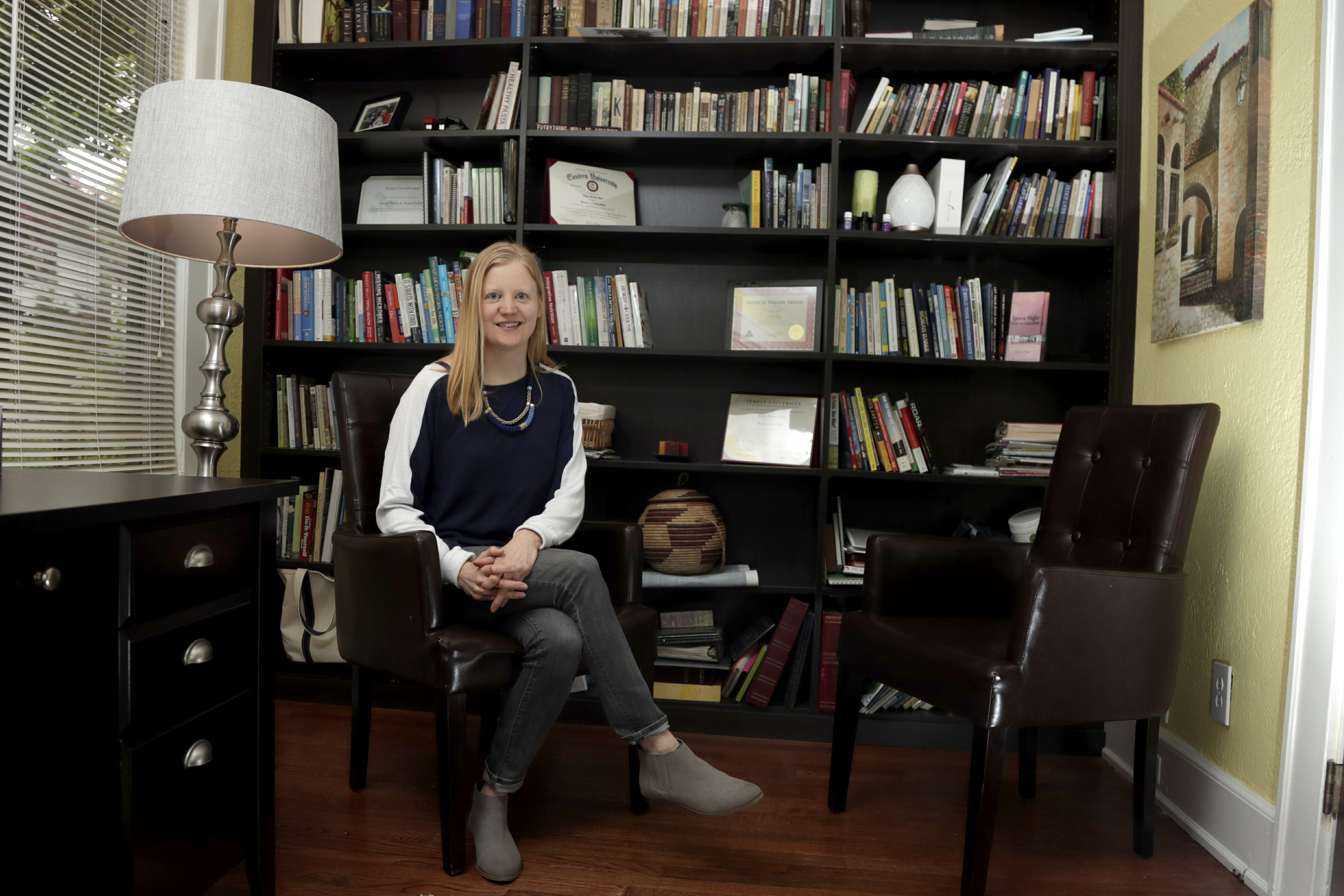
Who gets to give dietary advice? Health coach fights law
NEW YORK (AP) — In California, Heather Del Castillo offered tips on natural eating as a health coach. But in Florida, the title didn’t qualify her to give nutrition advice.
After getting a complaint that she was working without a license, Florida officials sent a cease-and-desist order and fined her $750. Del Castillo sued, saying her free speech rights were violated. Now, a federal court is expected to rule on her lawsuit as other states weigh regulations on professional dietary advice.
The case highlights the confusion around dietitians and health coaches, and how their qualifications differ.
“I literally didn’t even know I was doing anything that was wrong,” said Del Castillo, who noted her business was legal when she was living in California.
Health coaches like Del Castillo can get certificates from a variety of programs, but the title doesn’t have a consistent meaning and anyone can use it. Many say they can give clients advice on how to achieve their health goals through lifestyle changes.
Registered dietitians complete months of supervised practice, pass a national exam and take continuing education courses — requirements that are echoed in the licensing laws of states that have them. While they too can help people meet health goals, dietitians say they also have the qualifications to advise patients managing chronic diseases or other medical problems.
The Academy of Nutrition and Dietetics, which represents registered dietitians, says Del Castillo’s lawsuit poses a threat to other licensing laws that protect public health, such as those for doctors. It notes that it supports dietary licensing laws only for advice on medical conditions, such as diabetes and obesity.
“If they’re talking about wellness and general nutrition, that would not be affected,” said Pepin Tuma, an academy spokesman.
The Institute for Justice, a free market group that took up Del Castillo’s case, has for years challenged professional licensing requirements and says dietary advice should be protected as free speech, regardless of the context. It says advice about food and health is ubiquitous and that Florida’s law gives a monopoly to select individuals.
State laws vary. A few have no rules, while others require licenses only if people want to use titles such as “dietitian” or “nutritionist.” Florida restricts the dietary practice more broadly to licensed individuals.
Claudia Haupt, a Northeastern University law professor, said licensing laws would be most legally defensible in fields where there’s real potential danger people could be hurt. She said licensing would be harder to defend for florists or interior decorators, but noted it’s plausible that bad dietary advice can cause harm.
In court filings, Florida said its law protects people from incompetent advice. It said Del Castillo did not have the qualifications to obtain a dietary license but got a certificate as a “holistic health coach” from the Institute of Integrative Nutrition, an online school.
Darrell Rogers, a school spokesman, said laws like the one in Florida are outdated and that it’s rare for health coaches to face fines. The school helped connect Del Castillo with the Institute for Justice.
Del Castillo’s case also touches on disagreements about nutrition. Del Castillo is a trainer for Crossfit, which is known for high-intensity workouts and has been critical of the dietetics field. The company has fought licensing laws for fitness trainers and says it will fight any attempts at new or stricter dietary licensing laws that could prevent its trainers from giving nutrition advice. It has donated to the Institute for Justice for Del Castillo’s case.
Laura Boll-Peifer, a health coach in New Jersey, has a more moderate view. Like many other health coaches, she said her specialty is helping people achieve the goals they set for themselves and that dietitians are better suited to handle medical conditions like eating disorders or high cholesterol. But she was reluctant about introducing a dietary licensing law in her state.
“It’s just so hard to know where to draw the lines,” she said.
The National Board for Health & Wellness Coaches recently launched a certification exam for health coaches to bring more consistency to the field. In the meantime, states may contemplate new or updated rules on dietary advice.
After a separate challenge by the Institute for Justice, North Carolina had clarified its dietary licensing law. Last year, the state also narrowed the scope of the law to require licenses only for medical conditions. But that might not settle all questions.
Charla Burill, executive director of North Carolina’s dietetics board, noted that someone who’s obese might get help for a medical condition, or for general diet tips.
“Obesity could be a gray area,” she said.
___
Follow Candice Choi on Twitter: @candicechoi
___
The Associated Press Health and Science Department receives support from the Howard Hughes Medical Institute’s Department of Science Education. The AP is solely responsible for all content.
The Western Journal has not reviewed this Associated Press story prior to publication. Therefore, it may contain editorial bias or may in some other way not meet our normal editorial standards. It is provided to our readers as a service from The Western Journal.
Truth and Accuracy
We are committed to truth and accuracy in all of our journalism. Read our editorial standards.
Advertise with The Western Journal and reach millions of highly engaged readers, while supporting our work. Advertise Today.












